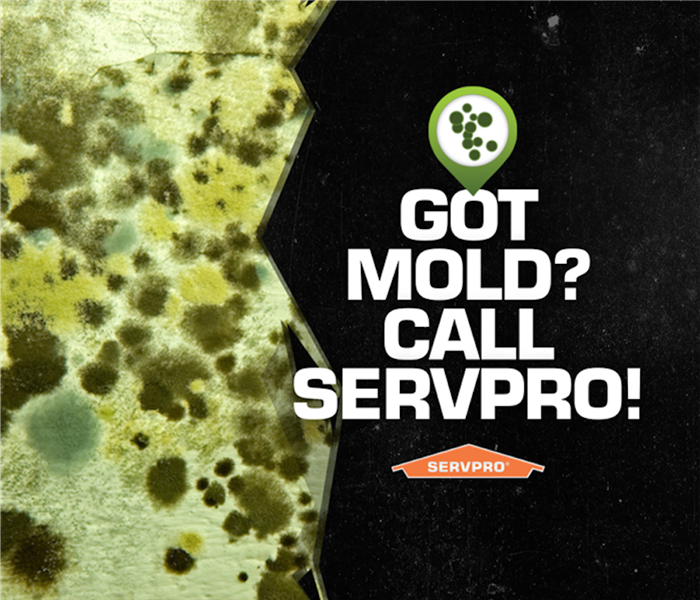Are There Telling Signs You Need Mold Remediation in Your Raleigh Home?
12/23/2021 (Permalink)
 Mold remediation for your property is no DIY project. SERVPRO has the knowledge and understanding for all phases of mold restoration.
Mold remediation for your property is no DIY project. SERVPRO has the knowledge and understanding for all phases of mold restoration.
Knowing what signals indicate possible mold growth can help protect your Raleigh property.
As destructive as mold damage can be for area homes and businesses, it might not always be completely clear that these threats exist. Some of the telling signs of this need for remediation include:
- Water damage
- Foul odors
- Visible growth
- Ruined materials
Moist and Damp Areas of the House
To discover your need for mold remediation in Raleigh homes, signals like moisture damage that could facilitate growth should be addressed as fast as possible. Damp pockets could hide developing mold in structural cavities, so any wet surfaces should be checked for additional damage during drying.
Musty Malodors
Mold is not always visible and easily identified, making effects like malodors a trusted source of information that might indicate possible problems. Musty odors can be a formidable presence during remediation, requiring various deodorization practices to resolve.
Physical Spotting on Surfaces
The presence of active colonization leaves little to the imagination about mold damage in the house. In the earliest stages, black mold and other residential types appear as spots on surfaces of impacted materials. This spotting can often be resolved with surface cleaning strategies.
Deteriorating Materials
Another telling sign that damage is actively occurring to hosting materials sensitive to mold colonies is a deterioration of structural elements like drywall. Ceiling and wall system sheetrock can begin to crumble and degrade after a short period of being a food source for active colonization. These conditions almost always require demolition and reconstruction to resolve.
Understanding the telling signs of mold production can ensure that appropriate work begins as soon as possible to remediate colonies and restore the damage these organisms can cause. Our AMRT-Certified technicians of our SERVPRO of North Raleigh & Wake Forest team are ready to help 24/7 when you call (919) 790-1222.

 24/7 Emergency Service
24/7 Emergency Service